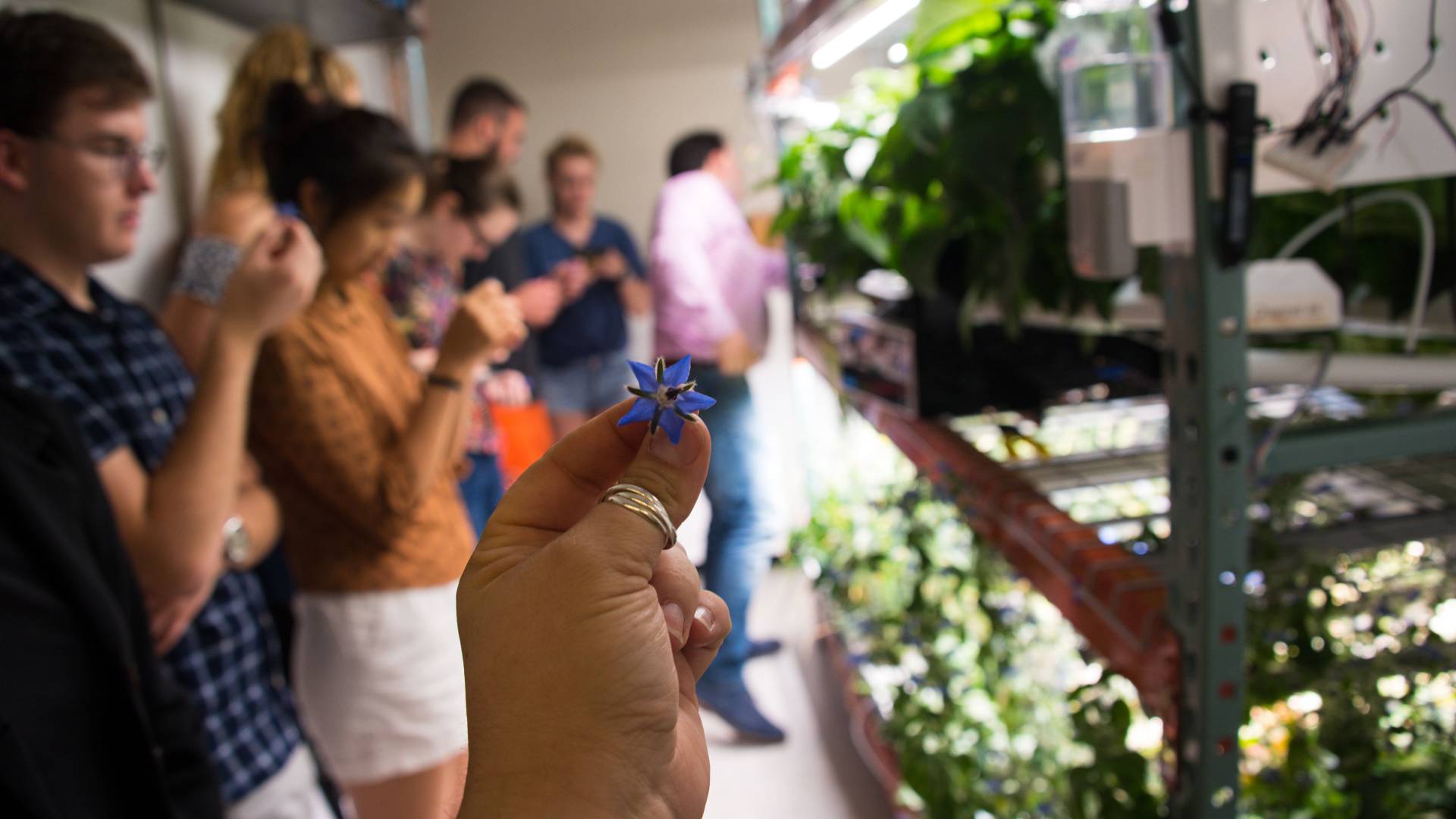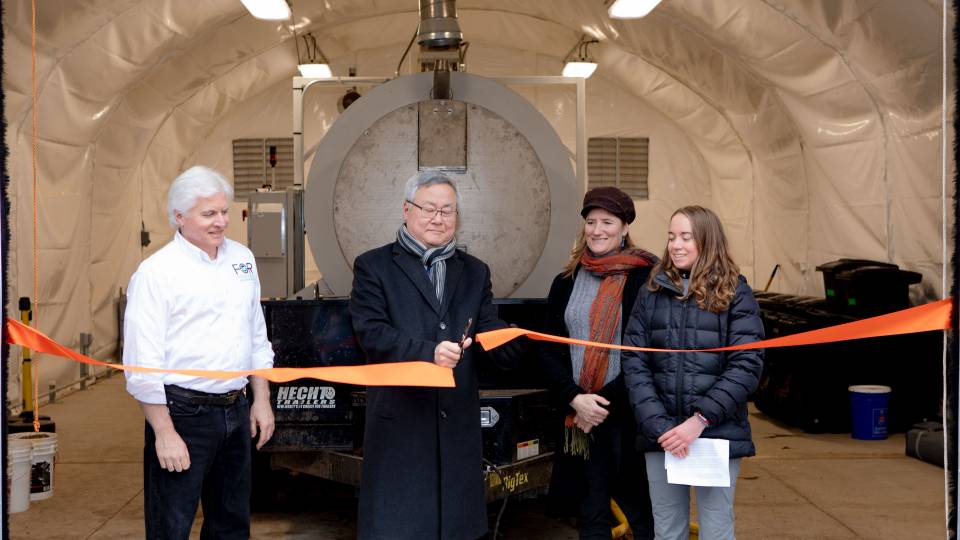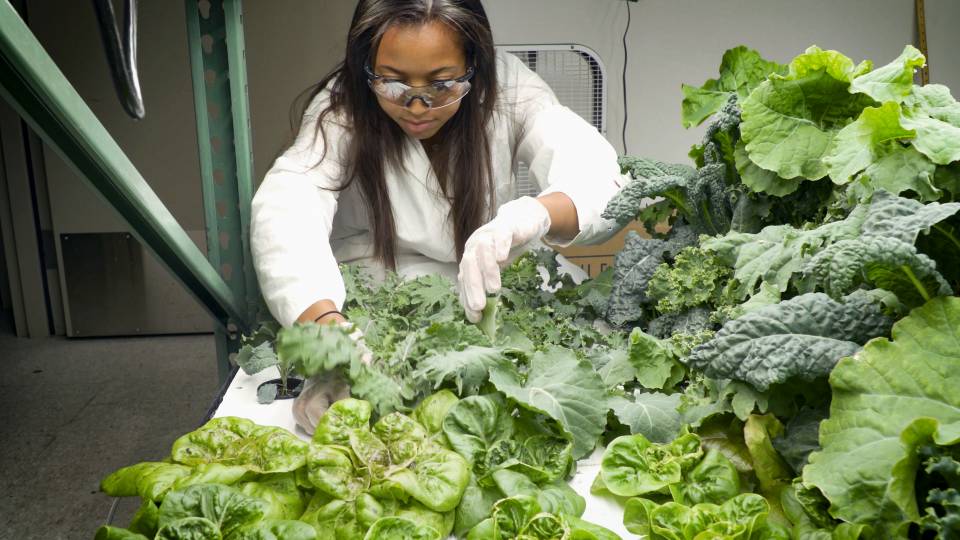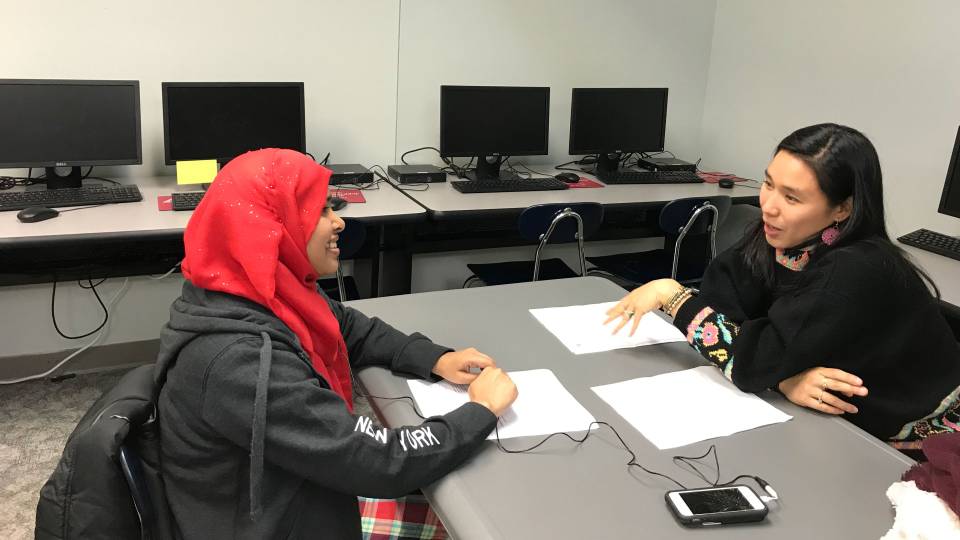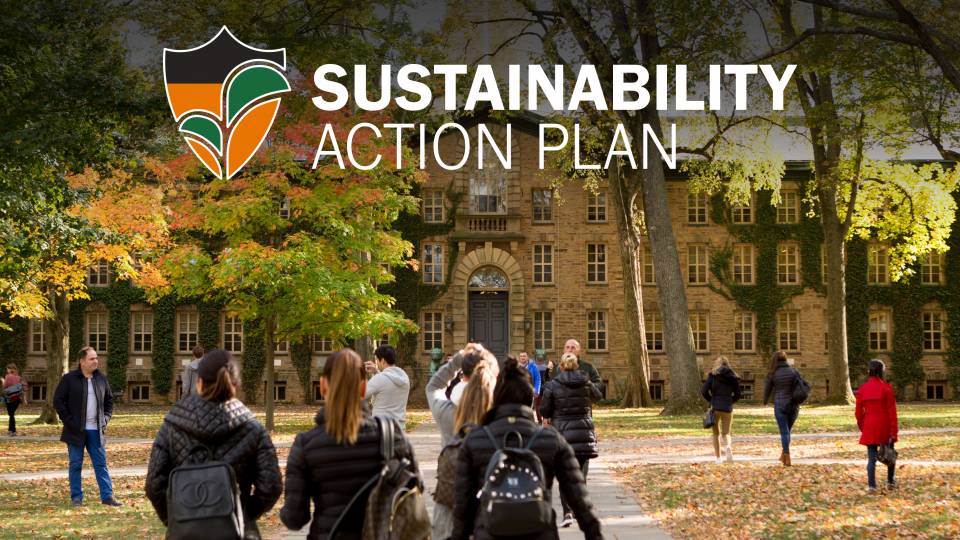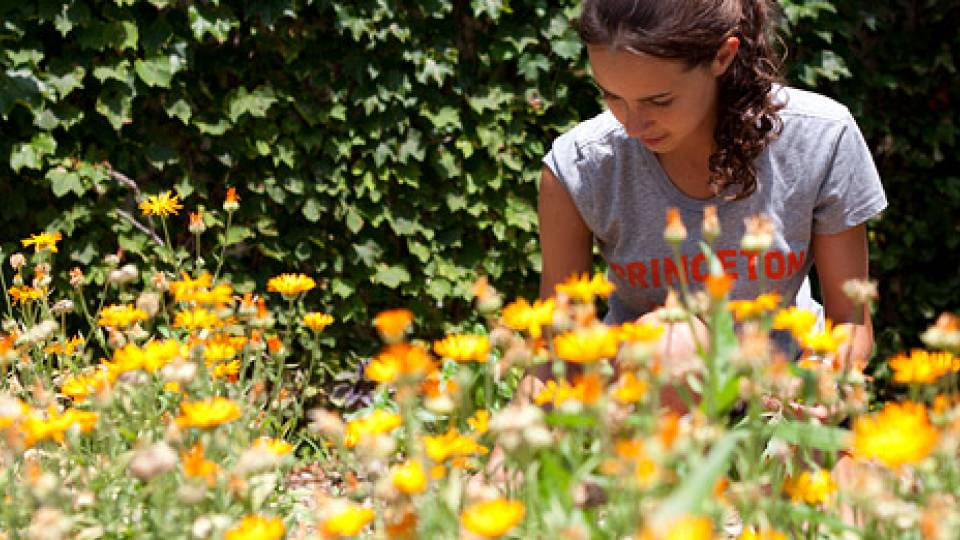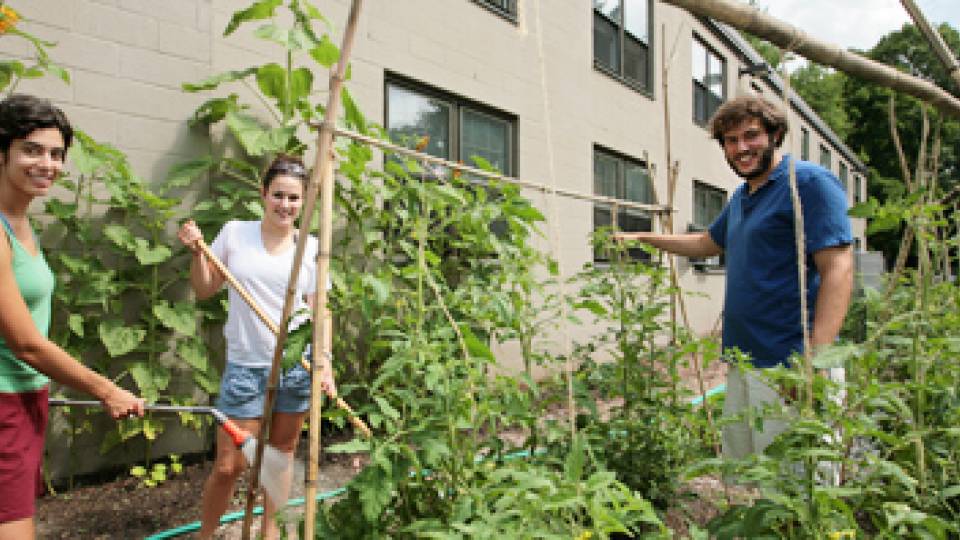Students in the class “Investigating an Ethos of Sustainability at Princeton” sample borage (also known as starflower) grown at the Vertical Farming Project in Moffett Laboratory. The class uses the University campus as a model, examining global issues by learning about the sustainable initiatives and challenges on Princeton’s campus.
Touring the Cogeneration Plant that powers University buildings. Eating plant-based burgers made by Campus Dining. Sampling herbs from the Vertical Farming Project. Walking in the rain to observe how campus gardens help filter runoff.
Students in the class “Investigating an Ethos of Sustainability at Princeton” use the University as their model and the campus as their lab. Taught by Director of Sustainability Shana Weber, the course examines global environmental issues through a local lens.
“Our campus is a microcosm of the world,” Weber said. “We can examine almost any dimension of a global sustainability challenge and see its reflection here at Princeton.”
Through field trips and conversations with staff and faculty, the 13 students gain firsthand knowledge of Princeton’s sustainability initiatives and innovations, as well as its challenges. They study recycling, food waste, water consumption, energy conservation, transportation management and much more.
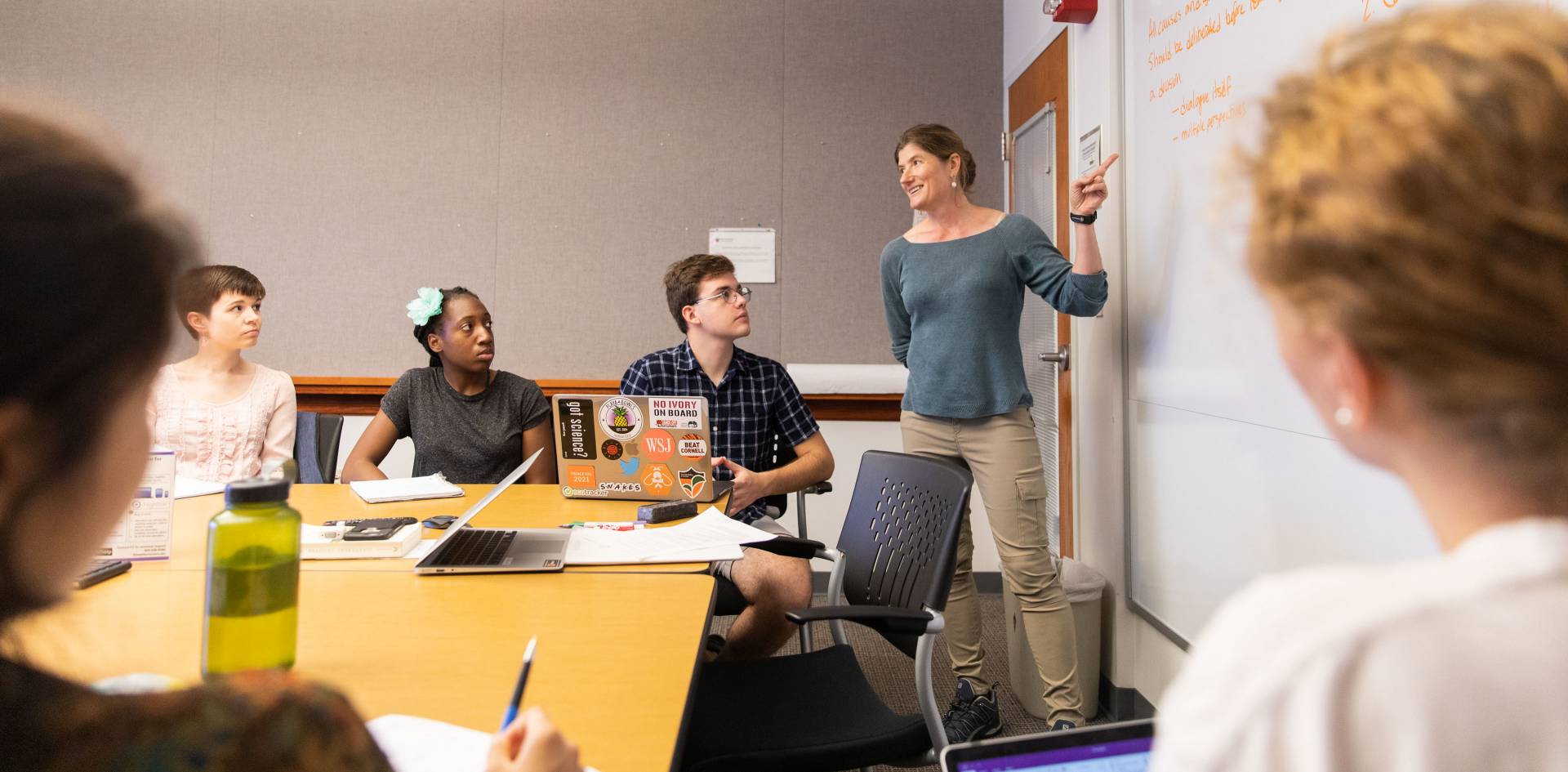
Princeton’s Director of Sustainability Shana Weber teaches the course, which is offered through the Princeton Environmental Institute and is part of the Program for Community-Engaged Scholarship (ProCES). Weber’s goal is for students to understand the behavioral, economic, operational and other considerations that go into sustainable decision-making.
“Having a college campus be the example of something innovative and efficient shows how big things in the world, big solutions, can have small roots,” said junior Satchel Joseph, a mechanical and aerospace engineering major from Hillside, New Jersey.
Emily Sharp, a sophomore from St. Louis, called the class eye-opening.
“I have so much more appreciation for Princeton’s sustainability efforts,” she said. “Much of what happens on campus goes on behind the scenes, and it's been really interesting to open that door and look into everything the University does.”
The goal is to understand the behavioral, economic, operational and other considerations that go into sustainable decision-making. How does a large and diverse institution like Princeton set its sustainability priorities? How does it determine which practices are most effective? How does it measure achievement and address challenges? And how does it encourage faculty, staff and students to change their personal practices?
“I want my students to dip their toes into behavioral science. I want them to consider how individuals and institutions make decisions that may (or may not) help address global sustainability needs,” Weber said. “And then I want them to apply that knowledge and propose solutions to real challenges using the campus as a study site.”
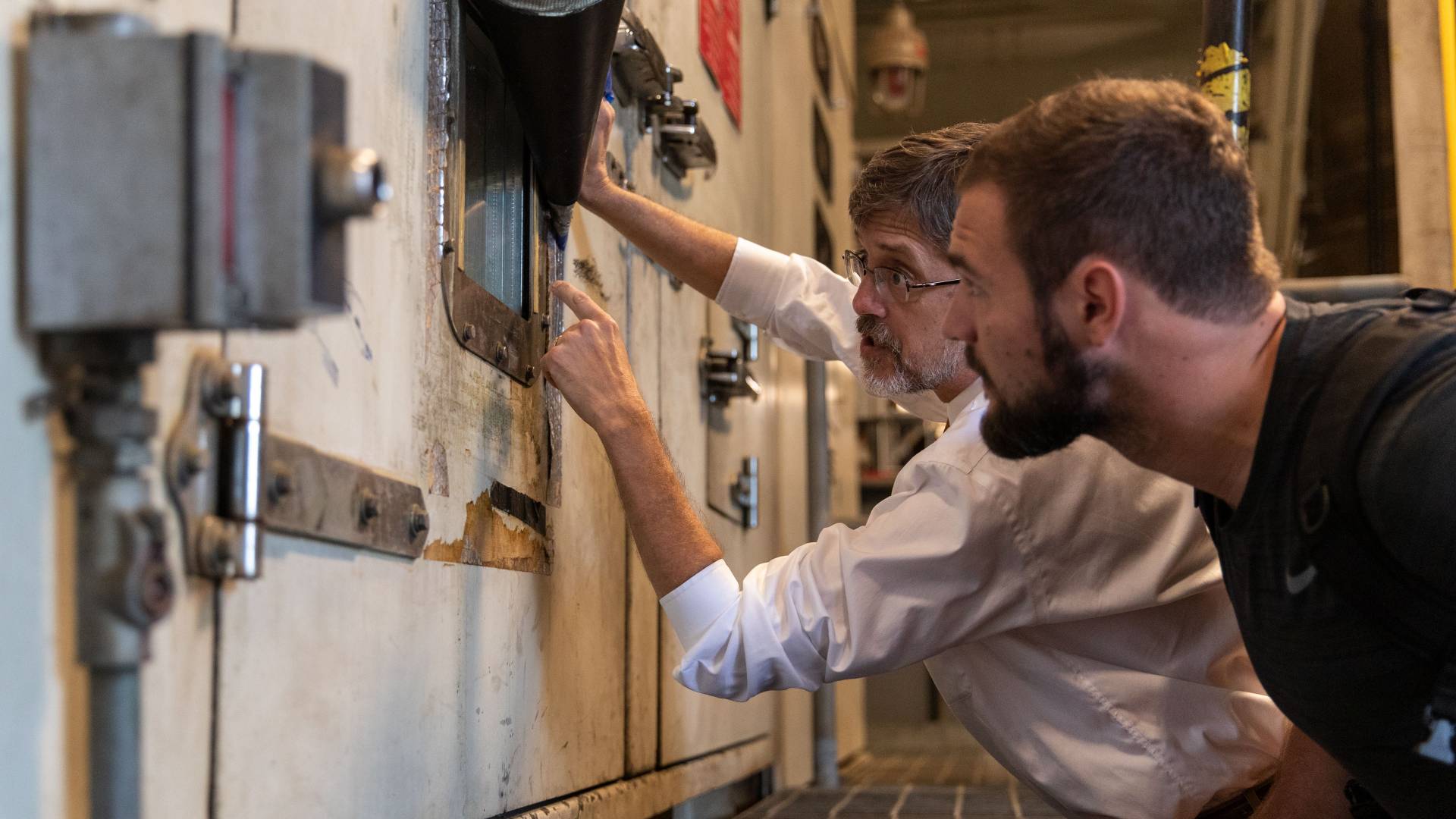
Energy Plant Manager Ted Borer (back) shows senior Jack Corso (front) the energy-efficient operations inside the University’s Cogeneration Plant, which helps power campus buildings. The tour of the Cogeneration Plant was one of many field trips where students learned firsthand about the University’s sustainable operations.
The class is offered through the Princeton Environmental Institute and is part of the Program for Community-Engaged Scholarship (ProCES). ProCES, formerly known as the Community-Based Learning Initiative, is an expanded program connecting academics and service.
“This course is community-based problem-solving at its core,” Weber said. “It challenges students to recognize and set aside their assumptions of what works and what doesn’t. Part of practicing service and civic engagement is to immerse yourself in the place and with the community and attempt to understand its systems.”
Weber continued: “The students are already part of the campus community, but few of them ever glimpse the institutional inner workings. Through this class, they are able to build knowledge to practice evidence-based problem-solving.”
Sophomore Jimin Kang of Seoul, South Korea, said the class perfectly pairs her passions. Kang is a member of the University’s new Service Focus program.
“Service Focus aims to bridge learning and service during the first two years of the undergraduate experience. As a Service Focus member, I have to take a ProCES course, and my interests lie in sustainability and food justice (the theme of my Service Focus small group cohort),” she said. “I think this is the first class I've taken at Princeton where every single person has the relevant lived experience of the themes we study. This means really rich discussion and a heightened sense of engagement.”
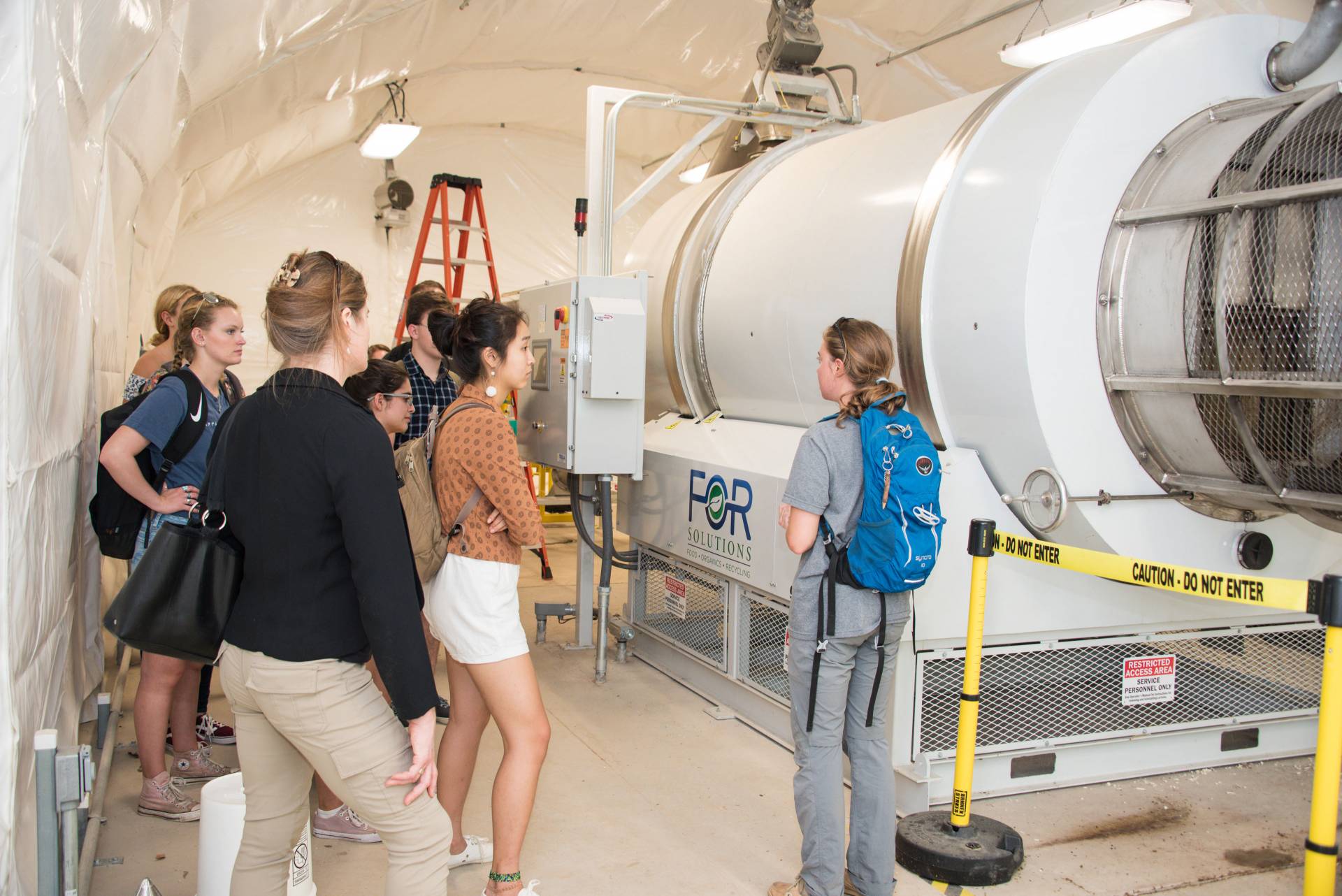
During another field trip, students visited the new biodigester project located behind Lot 21 on the edge of campus. The biodigester turns food scraps from Frist Campus Center into compost.
One afternoon, the class met in the lobby of Firestone Library for a discussion on sustainable construction and renovation practices.
“I was surprised how the Firestone renovation incorporated so many sustainable efforts,” Joseph said. “For example, the automatic lighting and addition of windows for more natural lighting show how something as old as Firestone Library can be revamped in a way that keeps its character while making sustainability a forethought instead of an afterthought.”
On another day, students trekked to Lot 21 at the edge of campus to tour the new biodigester. The group gathered as the machine hummed, turning food scraps from Frist Campus Center into compost. As part of the biodigester project, the compost is being tested as a soil improvement for campus lawns.
“If we evaluate the feasibility of a biodigester at the University, we can share our knowledge with other organizations seeking solutions to food waste,” Weber told the class. “A system like this also is an example of Princeton’s campus-as-lab approach, providing research and teaching opportunities for faculty and students.”
Students also pondered environmental challenges beyond the University’s direct control. During one class, Recycling and Solid Waste Manager David Oettinger shared the dos and dont's of recycling.
“There is no uniformity to recycling across the U.S. Every municipality does it differently,” he said. “Something may technically be labeled recyclable, but your local recycling center does not have the machinery to sort it. As important as the environmental aspects are to keeping this stuff out of landfills, there also are practical and economic considerations to what gets recycled.”
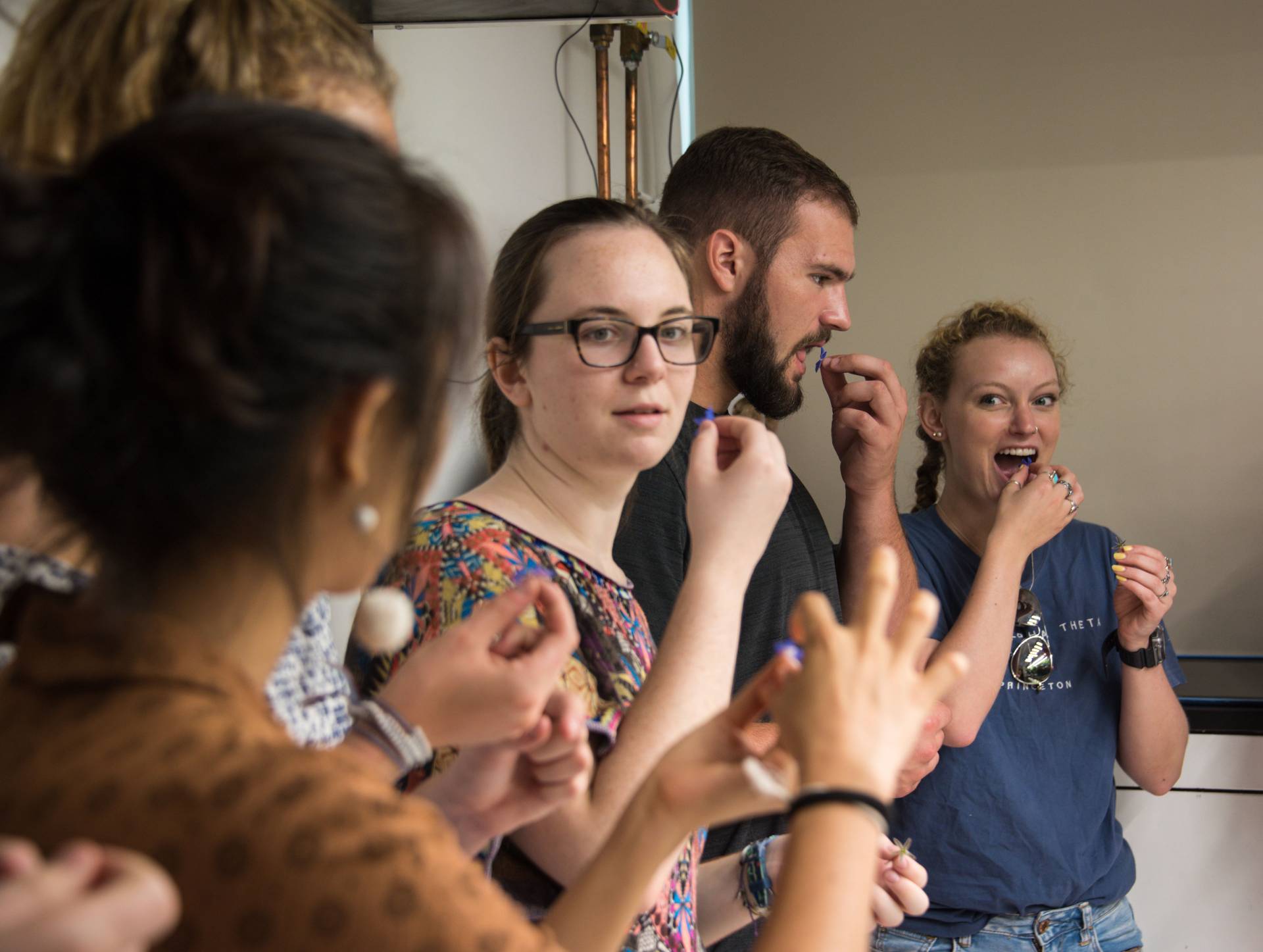
(From left to right) Emily Sharp, Jack Corso and Kate Woolford take a bite of borage from the Vertical Farming Project. Borage is an annual herb with edible flowers and leaves. Sharp said the class has given her more appreciation for Princeton’s sustainability efforts. “Much of what happens on campus goes on behind the scenes, and it's been really interesting to open that door and look into everything the University does,” she said.
While students learn about the University, the University also learns from them. For their final papers, students will make a sustainable policy or program recommendation and present it to administrators and professors for consideration.
Two years ago, a student suggested the University put small “zero waste” tents along the P-rade route during Reunions, where student EcoReps could help alumni sort trash into recycling, compost and landfill bins. The goal was to keep waste from contaminating recycling and composting streams. Weber said many tent sites were effective and the program continues to be refined for the P-rade.
“This class is not a platform for opinions about what we should or should not do,” Weber said. “Instead, I want my students to dig deeper; to study the complexities around the environmental issues they care about. I want them to think critically and develop evidence-based approaches to creating sustainable behaviors. If they get a sense for that approach to solving problems, they may be able to cultivate effective change wherever they go.”
